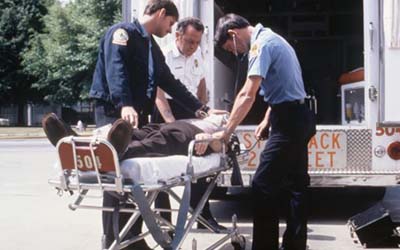|
Press Release
FOR IMMEDIATE RELEASE: April 10, 2024
CONTACT: Chelsea Wuth, 517-241-2112, [email protected]
Hometown Health Heroes and Jean Chabut Policy Champions honored by Michigan Public Health Week partnership
LANSING, Mich. – As part of Public Health Week in Michigan, 10 individuals and organizations were presented with the 2024 Hometown Health Hero and Jean Chabut Health Policy Champion awards for their contributions to protecting and improving the health of Michiganders. The Michigan Department of Health and Human Services (MDHHS) is a founding member of this partnership.
Hometown Health Hero awards are presented every spring as part of Michigan Public Health Week.
“Our Hometown Health Hero awards are a way for us to highlight selfless and dedicated champions of public health who are making incredible efforts to improve the lives of Michigan residents,” said MDHHS Director Elizabeth Hertel. “We celebrate all efforts, no matter how small or large, of health care professionals and advocates who make a positive impact on the well-being of our state.”
2024 Jean Chabut Health Policy Champion Award
There is one recipient this year of the Jean Chabut Health Policy Champion Award. This organization was nominated either by a member of their staff or members of their community. They have demonstrated an untiring commitment to the health and safety of their communities.
Community Voices for Health Equity: Community Voices for Health Equity, located in Washtenaw County, is an organization of community members who live in and identify areas of groups most impacted by health inequities in their county. The Community Voices (CV) team works to build relationships within and across their communities to discuss health equity issues, shape county health department practices and support community-led advocacy and action. The CV team also organizes events to connect community members with resources and are establishing a community health clinic that will open in 2024. CV is comprised of people who are deeply committed to removing barriers to health and improving people’s lives. Members give significant amounts of their personal time to convene and co-facilitate meetings, host community events, implement projects and advocate for health equity.
2024 Hometown Health Heroes Award Winners
Kathi Harris: As part of the PROACTIVE Project (People Reaching Out Advocating in the Community Together Increasing Voter Empowerment), Kathi Harris works to provide social and economic progress for minorities, low income and underrepresented people in the Grand Rapids area. In 2023, the Kent County Health Department began distributing water filters to prevent exposure to lead. Harris worked with the health department to improve outreach to community members who weren’t receiving information about the availability of filters. In addition, Harris began working with local churches and trained volunteer staff to register households for filters – eventually distributing more than 500 filters within the community. While providing social and economic progress for minorities, low income, and underrepresented, under-served and working people is the PROACTIVE Project’s mission, taking on a project such as distributing water filters is not part of their normal activities. Water filter distribution was an opportunity that was seized by Harris and her staff and volunteers ensure that the members of the community they serve received this valuable resource.
Lon’Dyn Hudson: Hudson serves the southeast Michigan area including Detroit by representing transgender, LGBTQ+ and other minorities and has a critical role in providing education, testing and other HIV/STI prevention strategies and resources to members of these communities. Hudson helped facilitate access to information about mpox and vaccination in non-traditional venues and outside of working hours when members of those communities were being disproportionally affected by the outbreak. Through this outreach Hudson was able to reach community members who were not comfortable or able to visit a health care provider to get access to care, as well as making sure community members had follow-up. Hudson is also part of Michigan’s statewide PrEP campaign “MIPrEP. MIChoice.” and shares her story on why she chooses to take PrEP for HIV prevention and helps others seek out the medication. Hudson is committed to supporting transgender and LGBTQ+ communities by creating spaces for people to freely express themselves, creating relationships and offering education around HIV/STI treatment and prevention.
Jill Montgomery Keast: As a public health leader, Keast has led multiple community efforts to improve the health and wellbeing of her community in Muskegon County specifically by decreasing the number of people dying from drug overdoses and increasing access to harm reduction initiatives. Keast co-founded the Muskegon Area Opiate Task Force in 2016 and began facilitating meetings and collecting data around opiate issues becoming the chair in 2023. A subject matter expert on multiple sources of data, Keast actively engages in regional and state data review on opioids, fatality review teams and epidemiological work groups and makes data accessible and actionable for her community. Keast is also part of Muskegon’s Red Project, a harm reduction organization and participates in the education and organization of naloxone distribution in Muskegon County. She facilitates collaboration with organizations across the county supporting harm reduction efforts and organized opioid settlement funding for Muskegon County.
Lannie Berg: In response to the tragic death of a newborn, Welcome Newborns of Delta County was created to promote the well-being of children, improve parent-child relationships and prevent child abuse and neglect. Welcome Newborns of Delta County provides education, age-specific monthly parenting newsletters, low-cost research-based materials and safe sleep kits to new parents. Materials are often distributed outside working hours to ensure new parents have access to resources that will keep children healthy and safe. This service is available to all parents in Delta County.
Steve Alsum: As program director of the Grand Rapids Red Project, Alsum is consistently looking for innovative ways to expand services and fill gaps that people experience when receiving medical care and substance use disorder services. A leader in harm reduction in Michigan, many reach out to Alsum when implementing harm reduction work in their own communities. Through his work, Alsum provides safe supplies to those who use drugs, provides HIV and hepatitis testing, distributes syringes and has reported more than 300 overdose reversals. Alsum also works with the University of Michigan and Michigan State Police to offer drug checking (ensuring drugs are not laced with other substances) and trainings to organizations and law enforcement. He is a member of the Opioid Task Force and works to ensure opioid settlement funds are used equitably in Michigan.
Monica Eriksen: As part of Luce, Mackinac, Alger and Schoolcraft (LMAS) Health Department, Eriksen engages with residents in the four counties to provide compassionate health care, supplies needed to prevent disease and other risks associated with substance use as well as support for people on their path to substance use recovery without judgement. Eriksen was hired January 2020 to provide a new harm reduction substance use disorder treatment service to residents served by the LMAS health department – two of these counties ranked second and fourth highest in 2018 in Michigan for susceptibility to HIV and Hepatitis C. Eriksen developed an implementation plan for harm reduction and connected with local partners while also identifying sites where a harm reduction mobile unit could be parked to serve residents. Through her outreach, Eriksen improved health of people in her community by ensuring those who experienced substance use disorders received non-judgmental care and set appointments, accompanied clients to appointments and ensured those affected were receiving follow-up care. In addition to her compassionate care for those affected by substance use disorder, Eriksen identified clients who needed extra care for their families and connected them to the Maternal Infant Health Program. She continually educates on reduction of stigma and how it prevents people from seeking treatment. Eriksen views every encounter as a chance to open doors to recovery for residents.
Families Against Narcotics: Families Against Narcotics (FAN) in Macomb County is a continuum of care for people who have been affected by substance use disorder (SUD) and makes connecting to treatment easier to get help regardless of where people live or if they have insurance. FAN’s goals are to increase access to medical services for people who are houseless through street medicine teams, increase access to safe using supplies and overdose reversal medication to people who are using substances through mobile services, increase access to SUD treatment and increase access to HIV and HCV testing and linkage to care. FAN also helps families and friends of those impacted by a loved one’s addiction by offering comprehensive recovery coaching which contributes to success in sobriety. FAN provides mobile services and connects participants with housing resources and medical care. In 2023, more than 2,500 people were connected with recovery services, 252 naloxone training sessions were held and over 3,200 naloxone kits were distributed across the state.
Momentum Center: Momentum Center is a social engagement facility located in Grand Haven and Holland serving youth over age 11 and adults with mental illness, addictions and disabilities in Ottawa, Muskegon and Allegan counties with the goal of creating a community where every person is fully visible and connected. The Momentum Center, created by Barbara Lee VanHorssen, provides a safe gathering spot and offers social and recreational activities involving exercise, nutrition information and job experience opportunities for participants to become more engaged community members. Members gather for coffee, classes, ice cream socials, movies, dinners and other social events and are able to engage and interact with others removing the stigma and stereotypes associated with those presenting differently.
Tammie Budrow: After tragically losing her daughter in a sledding accident, Budrow created the Chill Out for Winter Safety program to teach children and parents lifesaving winter safety tips. Chill Out for Winter Safety serves a 24-county area in northern Michigan and provides free helmets and fittings so children can be safe while participating in winter activities. Additionally, children and families are provided education and information on winter safety through school presentations or helmet clinics. Budrow has also packaged her work to be shared more broadly if other schools are interested in delivering winter safety education as part of their regular safety and physical education classes. She advocates that ski resorts include a helmet as part of their rental package instead of being an added cost. In 2023, 771 students were educated through four school presentations and seven helmet fitting events with nearly 500 helmets being distributed.
Honorable Mentions
- Ottawa County Migrant Health Task Force
- Kathy Moore, health officer for Muskegon County
- Loretta Bush, Authority Health
- Oakland Community Health Network
- Gerielle Bogus, Dollar General
- Farah Jalloul, B.S., Pharm.D. MBA, Michigan Pharmacist Association
- Elaine Lloyd PhD, RN, ACNS, Ne’Muse, L.L.C.
- Dan Oliver, Thunder Bay Community Health Service, Inc.
- Dr. Julia Yaroch, ProMedica Charles & Virginia Hickman Hospital
- Greg Swan, Fentanyl Fathers
- Ashlee Offord, Corewell Health
- Jones Community Outreach Center

###
|











